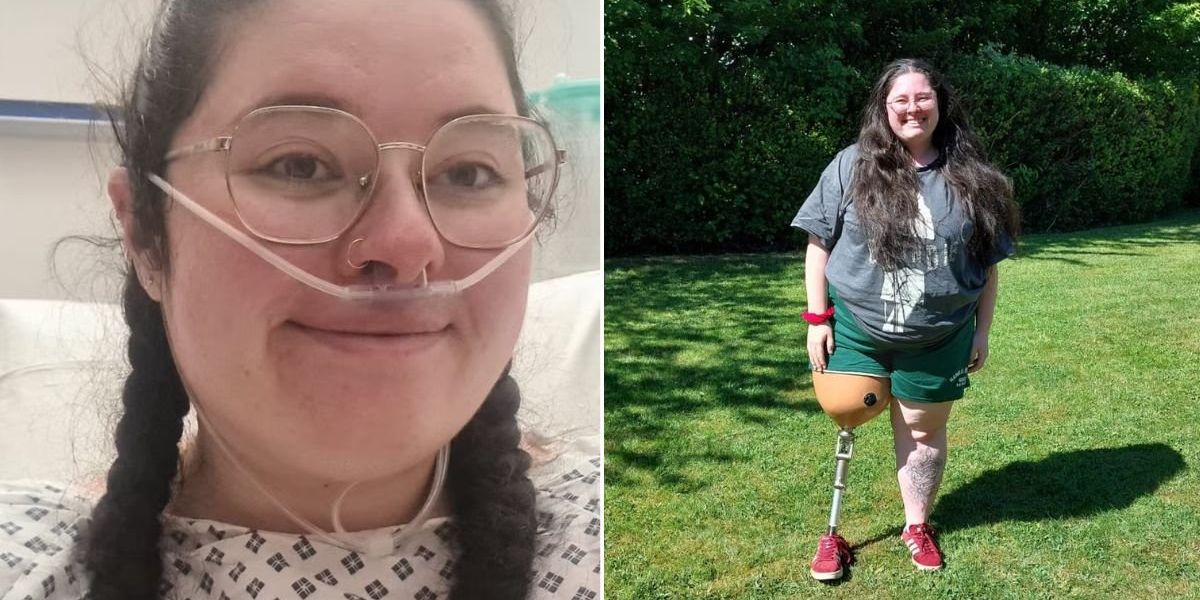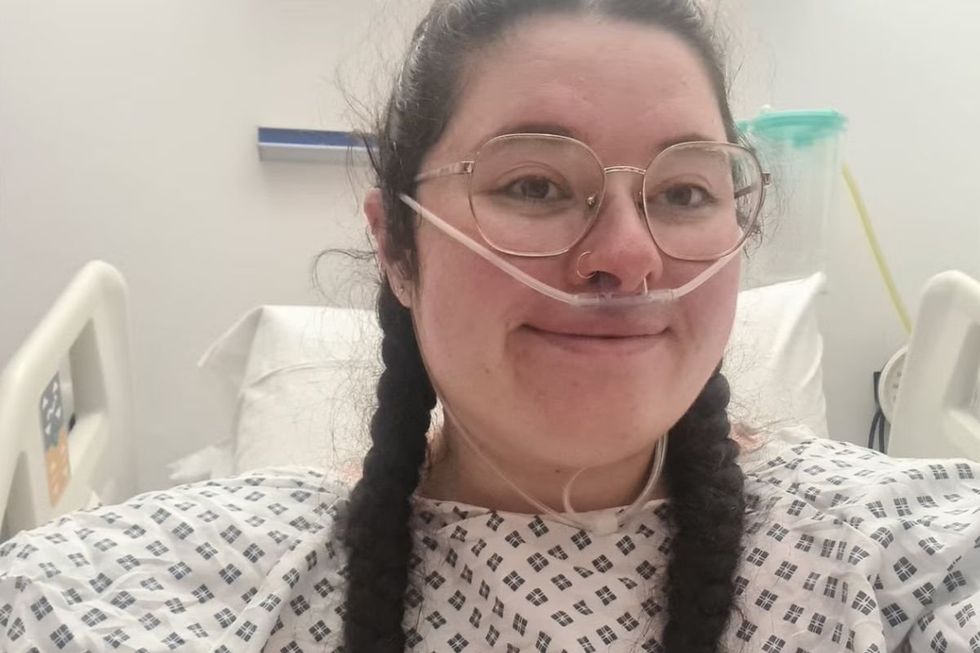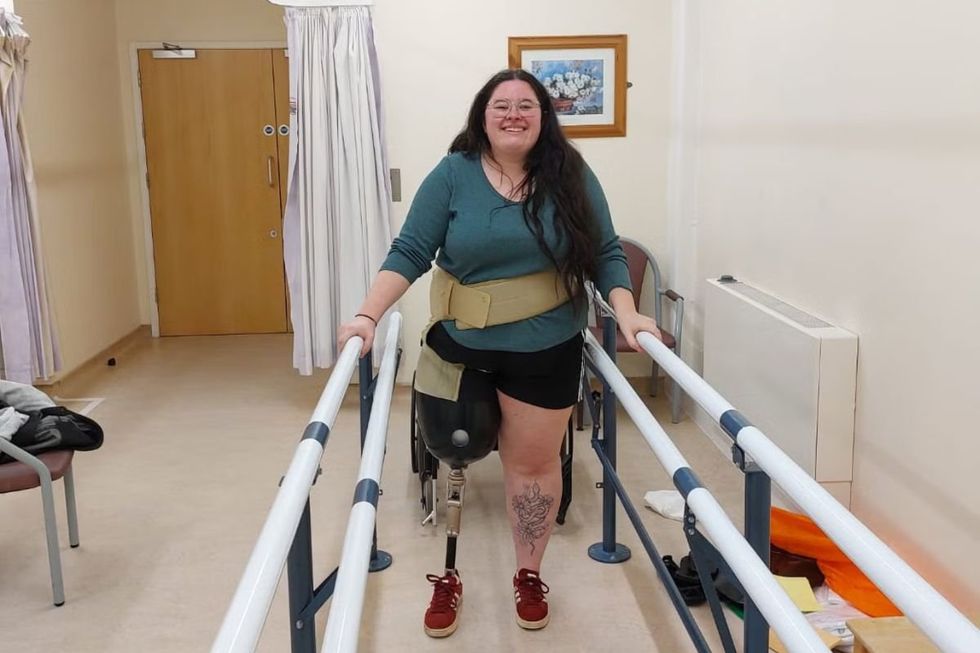



A young NHS nurse who lost her leg to an incredibly rare form of cancer is speaking out to help others spot the warning signs she initially missed.
Sophie Fay was just 26 when doctors discovered a cancerous tumour had taken over her entire calf muscle. The intensive care nurse from Merseyside is now learning to walk again with a prosthetic after having her leg amputated above the knee last December.
She's chosen to share her experience during Bone Cancer Awareness Week, which runs from today until October 12, hoping her story might prompt others to seek help sooner.
"You do get the realisation with something like this that our days are numbered and we're not all invincible," she said.

Sophie hopes her story might prompt others to seek help sooner
|PA
It all started when Sophie began working with a personal trainer in March 2024. She noticed an ache behind her right knee during exercise sessions but assumed it was just her muscles adjusting to the new routine.
The pain gradually worsened over the following months. By late August, her leg had become swollen and felt hot when she touched it. She'd developed a noticeable limp that caught the attention of her colleagues at work.
"My colleagues noticed it was swollen, and they suggested it could be a small blood clot in my leg," she explained.
Despite the visible swelling and increasing discomfort, Sophie continued to believe it was simply a sports injury. It's a mistake she now hopes others won't repeat.
Sophie's search for answers led her through a frustrating series of misdiagnoses. A consultant at her hospital performed an ultrasound that proved inconclusive, sending her to A&E where staff suspected a muscular injury.
Doctors then suggested she might have a Baker's cyst - a fluid-filled lump that often heals on its own. Sophie felt relieved by this explanation, as it seemed to match her symptoms.
But by November, the pain had become unbearable. She could no longer bend her leg, and measurements revealed her affected calf had grown six centimetres larger than the other.
"I think it measured six centimetres bigger than my other one," she recalled.
Her GP recommended physiotherapy, but Sophie knew something wasn't right. She decided to visit a walk-in centre instead, where staff finally ordered comprehensive scans.
An MRI scan on November 11 revealed the devastating truth. The following morning, Sophie was called back for urgent results.
"I just lost my head, there were all sorts of mad things going through my mind," she said. "I couldn't help but think it was a death sentence."
The scan showed a massive tumour had consumed her entire calf muscle. After a biopsy at a specialist orthopaedic hospital in Shropshire, doctors confirmed she had spindle cell sarcoma of the bone - an exceptionally rare cancer that typically affects people over 40.
The tumour had completely surrounded her blood vessels and nerves, leaving surgeons with no choice. Sophie underwent an above-the-knee amputation on December 17, just weeks after her diagnosis.
Sophie's recovery has been challenging, but she remains determined. Learning to use her prosthetic leg proved exhausting at first, with even short walks leaving her drained.
"It's comforting to know this is the hardest it will ever be," she said. "As time goes on, I'll get better prosthetic parts, a better socket and knee joint, things that will make it easier."

Sophie believed swelling in her leg was caused by a sports injury
|PA
She's returned to work in a non-clinical role and will need scans every three months for two years to monitor for any cancer recurrence.
Sophie's sharing her story to raise awareness about bone cancer symptoms and the importance of pushing for proper medical investigations.
"If sharing my story means bone cancer is spoken about more within healthcare, that's the main thing," she said.
